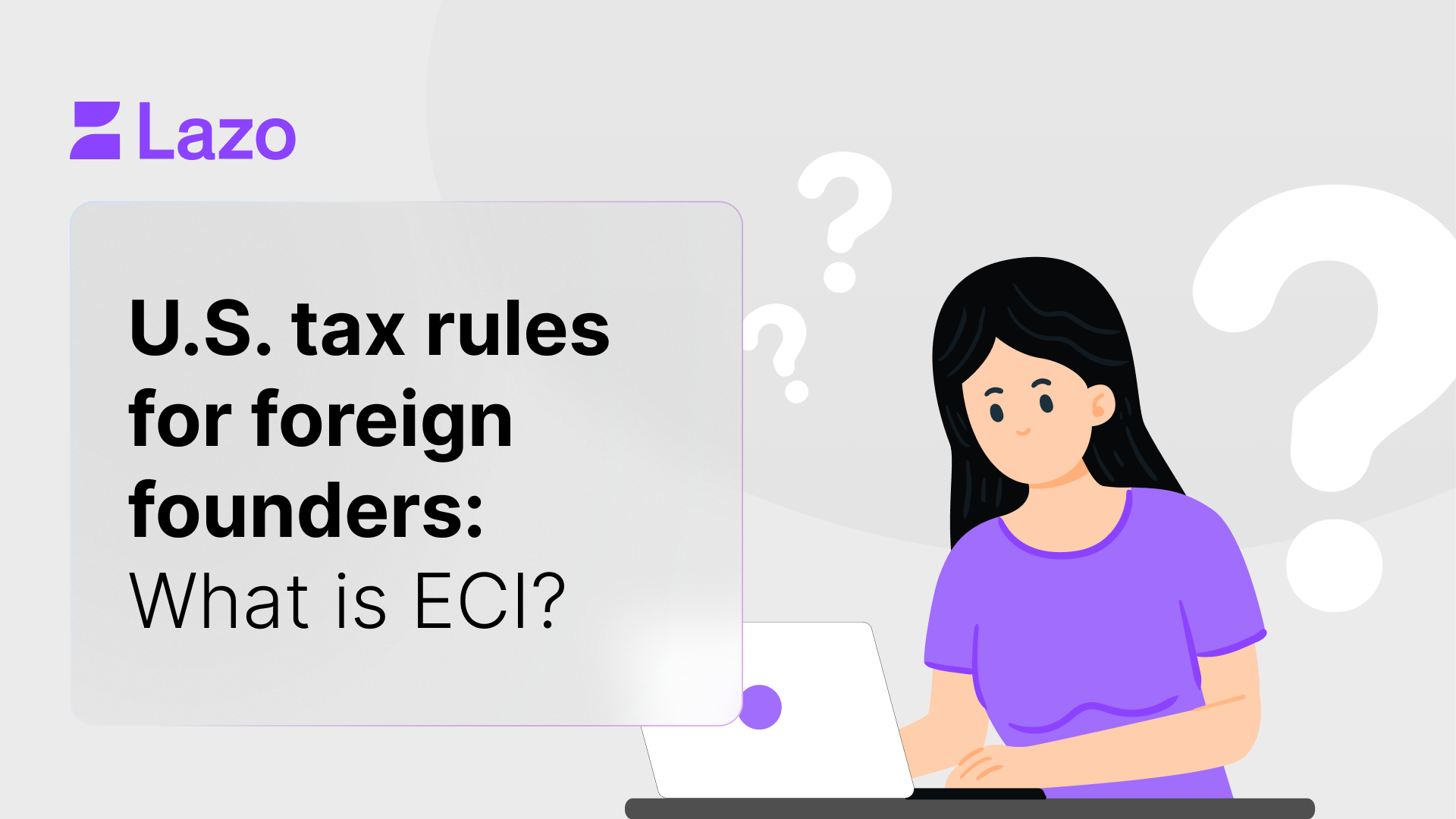Login to your Lazo One account here
Login

If you're a non-U.S. founder working with U.S. clients, you might owe U.S. taxes — even if you don’t have a company there.
This is where Effective Connected Income (ECI) comes in. Understanding how it works can save you from costly surprises and penalties down the road.
👉 If your startup earns revenue from U.S. clients, it’s crucial to understand your tax exposure. Learn how Lazo’s tax team can help you stay compliant.
Effective Connected Income refers to income earned by a foreign entity or individual that is “effectively connected” to a U.S. trade or business. When the IRS deems your income to be ECI, you may be required to:
This can apply even if you don’t have a U.S. entity or office.
The IRS uses a broad definition of what counts as “connected to a U.S. trade or business.” Common triggers include:
If any part of your business activity touches the U.S., it’s worth evaluating whether that income qualifies as ECI. You can also schedule a consultation with our team to understand your specific exposure.
If your income is classified as ECI:
If your income is also taxed in your home country, you may be able to use foreign tax credits or treaty relief to avoid double taxation.
In each case, the founder may trigger ECI, and often, they don’t find out until it’s too late.
Here’s how to reduce your exposure without stopping your U.S. growth:
Also, make sure to submit W-8BEN-E forms properly to your U.S. clients, this documents your foreign status and may reduce withholding.
Managing ECI can be overwhelming, especially when your startup is growing rapidly and crossing borders. But you don't have to do it alone.
👉 With Lazo, you get more than just tax filing assistance: you get a strategic partner that helps you structure your operations, comply with the IRS, and grow with confidence in the US market.
📅 Schedule a free consultation with our experts to assess your ECI exposure and protect your startup before problems arise.